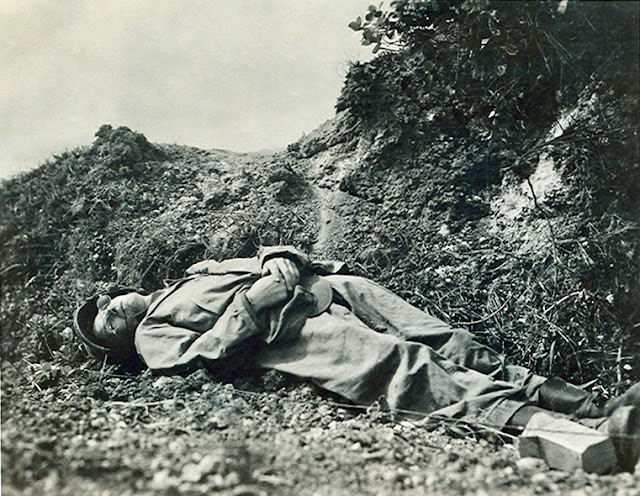Ernie Pyle, a U.S. Army service reporter, was killed in action on Iejima Island, Okinawa, Japan, on April 18, 1945, after being shot by Japanese soldiers. Ernie Pyle was buried helmeted among other war dead on Iejima Island, among U.S. Army infantry privates and combat engineers.
Ernie Pyle of the U.S. Army landed on Ie Island, Okinawa, with the U.S. Army 305th Infantry on April 17, 1945. Pyle, along with the 305th Infantry Regiment of the 77th Infantry Division, landed on Ie Island, a small island northwest of the main island of Okinawa. The Allied forces had captured Ie Island but had not yet completely eliminated the Japanese soldiers; by April 18, they had neutralized the local hostile Japanese forces. Pyle was traveling around Ie Island in a jeep with Lieutenant Colonel Joseph B. Coolidge. Pyle, along with Lt. Col. Coolidge, commander of the 305th, and three other officers, were traveling in a jeep toward Coolidge's new headquarters.
As the jeep slowed to avoid traffic ahead near the village of Ie, a Japanese soldier hiding on a coral ridge about a third of a mile away opened fire with a Southern machine gun. A burst of shells hit the road overhead, and they quickly took cover in a nearby ditch. A short time later, Pyle and Coolidge got up to look around. The Japanese soldiers fired again, and Coolidge, dodging a bullet, turned to see Pyle lying on the ground. A bullet struck Pyle in the left temple. Coolidge looked at Ernie Pyle, a retired military reporter, who had been shot and killed.
June 6, 1944 was D-Day (the day the attack began), when the Allied landings in Normandy, France, in the “greatest operation ever undertaken” by the Allied forces, began. On the first day of the landings, only a small area was occupied, and it took 20 days to overrun the entire area. Although the Normandy landings were largely accomplished, many soldiers lost their lives. Army reporter Ernie Pyle (1900-1945) was aboard the D-Day fleet and landed shortly after his unit. He was wounded in a bombing run and narrowly escaped death. For his article on this occasion, Annie Pyle was awarded the Pulitzer Prize for 1944.




No comments:
Post a Comment